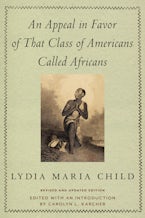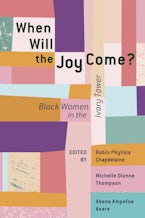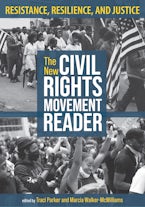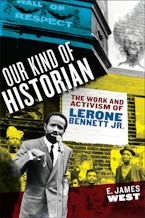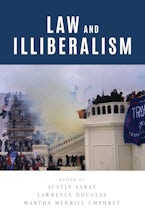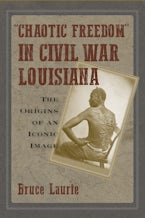- Home
- In Sullivan's Shadow
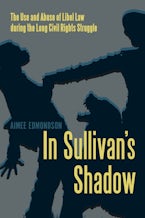
In Sullivan's Shadow
The Use and Abuse of Libel Law during the Long Civil Rights Struggle
Published by: University of Massachusetts Press
382 Pages, 6.00 x 9.00 x 1.10 in, 6 b&w illus.
Other Retailers:
For many years, the far right has sown public distrust in the media as a political strategy, weaponizing libel law in an effort to stifle free speech and silence African American dissent. In Sullivan's Shadow demonstrates that this strategy was pursued throughout the civil rights era and beyond, as southern officials continued to bring lawsuits in their attempts to intimidate journalists who published accounts of police brutality against protestors. Taking the Supreme Court's famous 1964 case New York Times v. Sullivan as her starting point, Aimee Edmondson illuminates a series of fascinating and often astounding cases that preceded and followed this historic ruling.
Drawing on archival research and scholarship in journalism, legal history, and African American studies, Edmondson offers a new narrative of brave activists, bold journalists and publishers, and hardheaded southern officials. These little-known courtroom dramas at the intersection of race, libel, and journalism go beyond the activism of the 1960s and span much of the country's history, beginning with lawsuits filed against abolitionist William Lloyd Garrison and concluding with a suit spawned by the 1988 film Mississippi Burning.
Drawing on archival research and scholarship in journalism, legal history, and African American studies, Edmondson offers a new narrative of brave activists, bold journalists and publishers, and hardheaded southern officials. These little-known courtroom dramas at the intersection of race, libel, and journalism go beyond the activism of the 1960s and span much of the country's history, beginning with lawsuits filed against abolitionist William Lloyd Garrison and concluding with a suit spawned by the 1988 film Mississippi Burning.
AIMEE EDMONDSON is associate professor at the E. W. Scripps School of Journalism at Ohio University.
"[E]stablishes that libel law was a powerful weapon in white supremacists’ arsenal—a weapon that other historians have neither appreciated nor explored . . . Edmondson’s work certainly illuminates a new dimension to the story of the civil rights movement and the workings of white resistance."—Journal of American History
"In Sullivan's Shadow balances scholarly research with readable stories of little-known publishers, civil rights activists, and citizens who found themselves on the wrong side of the legal power structure in the South and faced a broad range of legal risks through the abuse of the law of defamation."—Roy Gutterman, director of the Tully Center for Free Speech at the Newhouse School, Syracuse University
"Edmondson's painstaking archival research and keen eye for detail bring overlooked legal dramas to life. By doing so, she honors the brave work of black journalists and activists who suffered grievously in their battle to protect free speech for all of us."—Sid Bedingfield, author of Newspaper Wars: Civil Rights and White Resistance in South Carolina, 1935–1965
"This book provides important insights into efforts to use the legal system as a weapon against journalists and civil rights advocates. It will be invaluable to those researching civil rights as well as those interested in libel and free expression."—CHOICE
"Drawing on archival research and scholarship in journalism, legal history, and African American studies, Edmondson finds that throughout the US civil rights era and beyond, southern officials brought libel actions in an attempt to intimidate journalists who published accounts of police brutality against protestors."—Law and Social Inquiry
"In Sullivan's Shadow is a useful addition. As plentiful as the literature on Sullivan is, this book provides even more context to that important case."—American Journalism
"Edmondson's research suggests that libel lawsuits were a more significant tactic in defending white supremacy, racial segregation, and police brutality than scholars have generally acknowledged."—Journal of Southern History
Selected as a 2020 Choice Outstanding Academic Title

